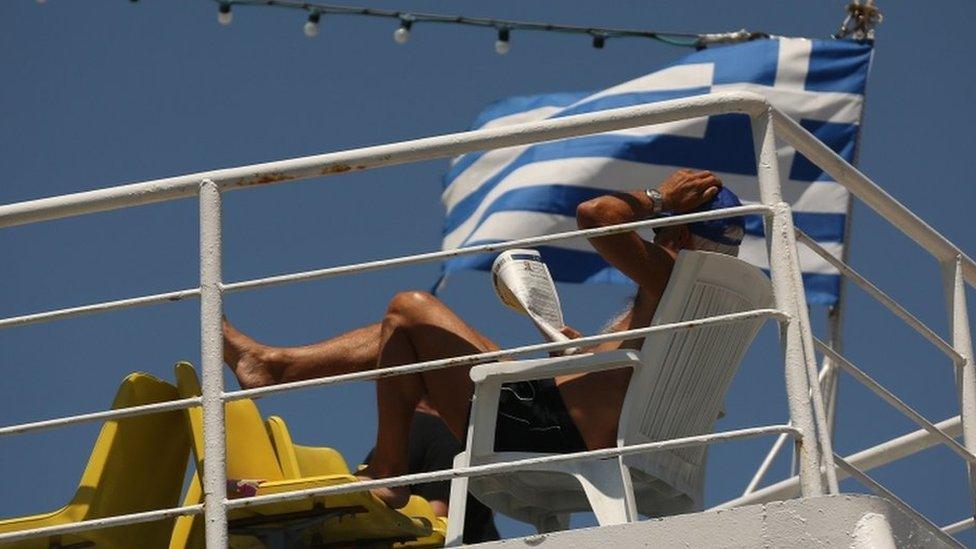The battle over the eurozone's future
- Published
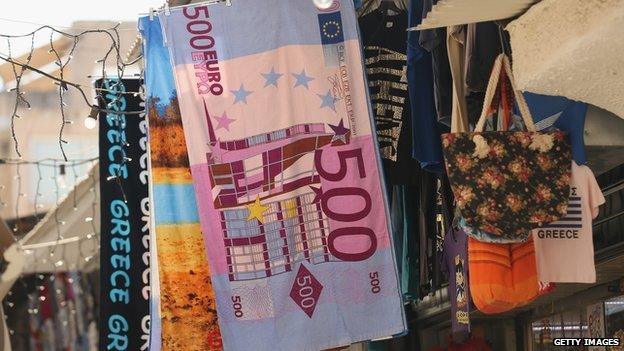
On Wednesday Greece votes on the second tranche of reforms required to secure a third bailout from its creditors.
The upside, optimistic scenario now looks something like this: the measures are passed, a third funding package is agreed and, with trust between the Greek government and its creditors gradually restored, some sort of debt relief (probably involving interest rate cuts, interest payment moratoriums and the extension of the loans maturities) is agreed later this year or early next.
The Greek economy is about to be hit by further spending cuts and tax rises but the hope is that a variety of other factors - European Union investment money, the slow return to health of the banking system, the lessening of uncertainty about Grexit and access to quantitative easing - will offset that.
The potential is there, given the depth of the recession, for a fast bounce in Greek growth. Of course that potential has been there for years and hasn't occurred.
That optimistic scenario requires a lot to go right when things in this crisis have a habit of going wrong.
Franco-German divide
While a Grexit has been avoided in the short term, the medium- to longer-term risk remains.
But in many ways the last few weeks in Greece have been the start of a bigger battle, a battle on what the eurozone of the future will look like.
Few now doubt that the institutional architecture of the zone is flawed. A currency union without a fiscal union was always vulnerable to these sort of shocks. And, perhaps more crucially, a currency union in which the banking system is still predominantly national, rather than European, was always likely to run into problems.
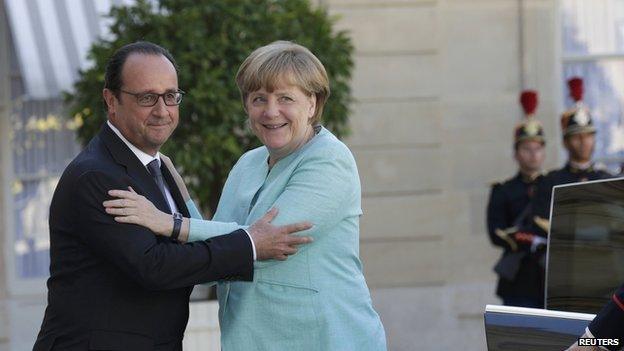
Hollande and Merkel are dancing to different tunes over eurozone rules
In a more ideal world - in a situation in which Greek banks were constrained and unable to extent credit - French, German and other lenders would have stepped into the breach.
It's hard to avoid the thought that the politics of European integration ran ahead of the economics of the underlying reality.
The last few weeks have exposed a sharp Franco-German divide. On one level, this is ideological. For France the euro is irreversible, the culmination of decades of integration. But the German view differs. They see the single currency as an agreed set of rules and behaviours and, if someone "breaks" the rules, they can be thrown out.
Their analysis of the underlying economics of the crisis differs, too. The Germans believe the tough fiscal rules agreed in 2012 are the answer to the crisis: legislate that states should be running sound public finances and these sorts of crises won't appear.
Fault-line
For the French, though, that's an incomplete answer. The emphasis for Hollande is on growth, rather than budget rigour.
And, while Greece's public finances have been an issue for years, it is worth remembering that crisis-hit Spain and Ireland were models of sound budgeting. Across the zone has a whole, private debt was a bigger factor in driving the crisis than public debt.
The fight over the next year is about the what the zone's new rules will look like. It pits France and Italy against Germany, Finland and others.
Finding a solution that can be agreed by both sides will not be easy. And the last few weeks do offer two reasons for pessimism.
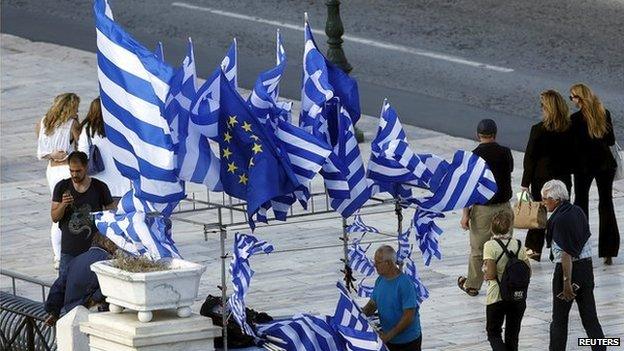
The Greek vote reflects a wider debate over the currency's future
First, the Greek economy is roughly the size of that of the German city of Dusseldorf. And yet it's been the flashpoint that has nearly torn the eurozone apart. That suggests that the currency union - and indeed the EU project itself - are not as irreversible as its proponents sometimes imagine.
And second, the fault line that has been exposed is geographic rather than ideological. France and Italy offered support to Greece (both countries that would stand to benefit from looser fiscal rules) while the social democrats of northern Europe offered support to the positions of their own centre-right governments.
Building a eurozone that is more resilient requires further integration. The more that fiscal policy and financial sector policy are pooled, the greater the shared sovereignty.
In the longer term, if the euro is to be more than a system of fixed exchange rates (and such systems are always reversible) then it will have to become more "state-like".
But it's hard to build a state without a people. When push came to shove, most eurozone politicians lined up not with their ideological peers but along national lines.
- Published22 July 2015
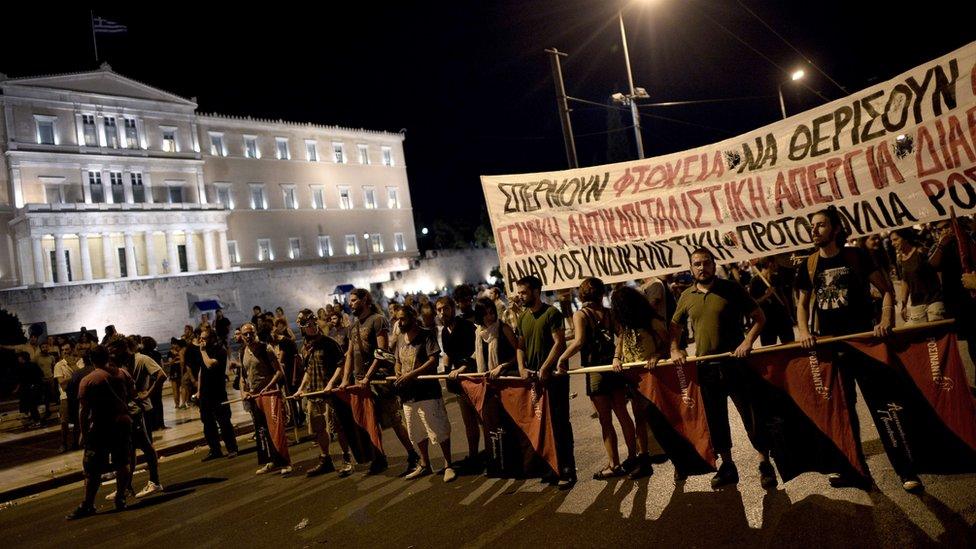
- Published20 July 2015
